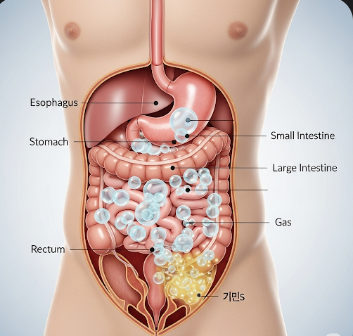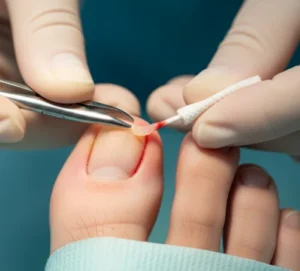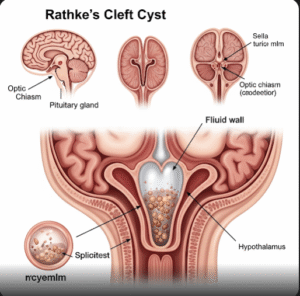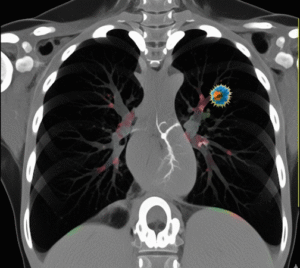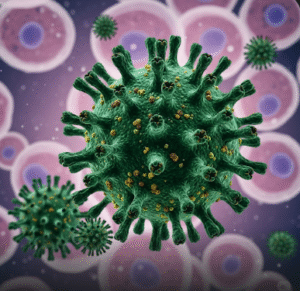Overview
Flatulence, commonly known as farting, is the release of gas from the digestive tract through the rectum. It is a normal physiological process resulting from swallowed air, bacterial fermentation of food in the intestines, or certain metabolic processes. While occasional flatulence is normal, excessive or malodorous gas can indicate underlying digestive issues. In Korea, gastroenterology clinics specialize in evaluating and managing flatulence, offering dietary guidance, medical therapies, and advanced diagnostic procedures to help individuals reduce symptoms and improve quality of life.
Highlights:
➤ Normal digestive process but can become excessive or uncomfortable
➤ Can indicate dietary, digestive, or medical issues
➤ Management includes lifestyle changes, diet modification, and medical intervention
Key Facts
➤ Prevalence: Almost everyone experiences flatulence; excessive gas affects about 10–20% of adults
➤ Age affected: Can occur at any age; dietary habits play a major role
➤ Gender: Equally common in men and women
➤ Impact: Can cause discomfort, bloating, social embarrassment, or pain
➤ Prognosis: Most cases are benign; underlying gastrointestinal conditions require treatment
What is Flatulence?
Flatulence is the expulsion of intestinal gas through the anus, produced by:
- Swallowed air (aerophagia): Eating or drinking quickly, chewing gum, or talking while eating
- Bacterial fermentation: Breakdown of undigested carbohydrates in the colon
- Metabolic processes: Production of gases like hydrogen, methane, and carbon dioxide
Flatulence can be physiological (normal) or pathological (related to digestive disorders). Factors influencing flatulence include diet, gut microbiota, gastrointestinal motility, and health conditions.
Highlights:
➤ A normal digestive function that becomes concerning if excessive or malodorous
➤ Assessment includes frequency, odor, and associated symptoms
➤ Often a reflection of diet and digestive health
What Symptoms Are Related to Flatulence?
➤ Excessive passing of gas
➤ Bloating and abdominal distension
➤ Abdominal cramping or discomfort
➤ Belching (burping) – May accompany swallowed air
➤ Malodor: Strong smell indicating sulfur-containing foods or digestive imbalance
➤ Altered bowel habits: Diarrhea, constipation, or irregular stools may be present
➤ Associated gastrointestinal symptoms: Nausea, heartburn, or indigestion
Highlights:
➣ Symptoms can help distinguish between normal flatulence and underlying digestive disorders
➣ Sudden changes in frequency or odor may warrant medical evaluation
What Causes / Possible Causes
➤ Dietary factors: Beans, lentils, cruciferous vegetables, carbonated drinks, and high-fiber foods
➤ Swallowed air: Eating quickly, chewing gum, smoking, or talking while eating
➤ Digestive disorders: Irritable bowel syndrome (IBS), celiac disease, lactose intolerance
➤ Gut microbiota imbalance: Dysbiosis may increase gas production
➤ Constipation: Slower bowel transit increases bacterial fermentation and gas accumulation
➤ Malabsorption syndromes: Improper digestion of carbohydrates or fats
➤ Medications: Antibiotics, laxatives, or other drugs affecting gut flora
➤ Rare causes: Gastrointestinal obstruction, inflammatory bowel disease, or metabolic disorders
Highlights:
➣ Flatulence can result from normal physiology, diet, or underlying digestive conditions
➣ Identifying triggers is essential for effective management
When Should I See My Doctor?
➤ Excessive flatulence interfering with daily life
➤ Persistent bloating, abdominal pain, or discomfort
➤ Changes in bowel habits: Diarrhea, constipation, or blood in stool
➤ Unintentional weight loss or poor appetite
➤ Foul-smelling gas accompanied by other systemic symptoms
Highlights:
➣ Consultation at a Korean gastroenterology clinic is recommended for persistent or concerning symptoms
➣ Early evaluation can identify digestive disorders or metabolic issues
Care and Treatment
➤ Dietary modification:
- Reduce high-gas foods such as beans, cabbage, and carbonated drinks
- Eat smaller, frequent meals and chew food slowly
➤ Probiotics: Improve gut microbiota balance and reduce gas production
➤ Over-the-counter remedies: - Simethicone for bloating relief
- Activated charcoal in selected cases
➤ Hydration and exercise: Regular activity promotes intestinal motility
➤ Medical treatment: - Address lactose intolerance, celiac disease, or IBS with appropriate interventions
- Medications for digestive enzyme supplementation if needed
➤ Behavioral modifications: Avoid chewing gum, smoking, and talking while eating
Highlights:
➣ Most flatulence can be managed with diet, lifestyle, and gut health optimization
➣ Persistent or severe cases may require medical evaluation and treatment
Treatment Options in Korea
Medical Treatments:
➤ Gastroenterology clinics: Diagnostic evaluation including stool tests, breath tests, and imaging
➤ Dietitian services: Personalized dietary plans to reduce gas and improve digestion
➤ Medication management: For IBS, lactose intolerance, or other gastrointestinal disorders
Advanced Procedures:
➤ Endoscopic evaluation: In cases of chronic gastrointestinal issues or malabsorption
➤ Gut microbiota interventions: Probiotic therapy or fecal microbiota transplantation in selected cases
➤ Surgical intervention: Rarely needed, only for obstruction or severe structural causes
➤ Follow-up care: Monitoring symptoms, bowel habits, and dietary adherence
Rehabilitation & Follow-Up Care:
➤ Education on diet, eating habits, and lifestyle modifications
➤ Continuous assessment of gut health, symptom severity, and triggers
➤ Multidisciplinary support for nutrition, behavioral, and digestive wellness
Highlights:
➣ Korean clinics provide advanced diagnostics, individualized dietary counseling, and long-term management
➣ Effective care improves comfort, digestion, and social quality of life

